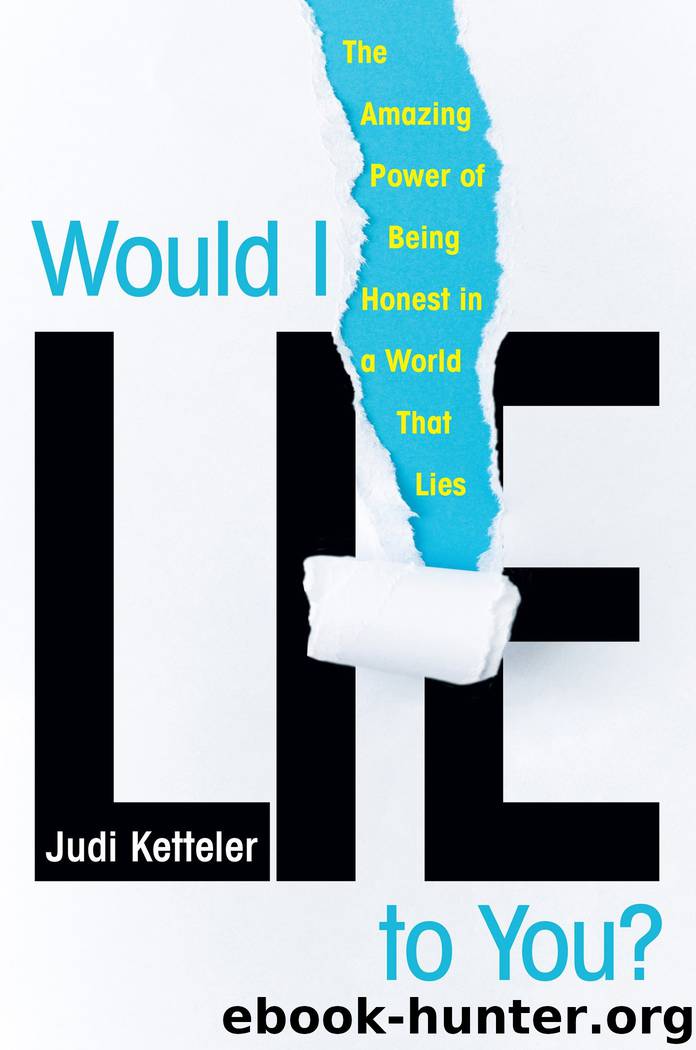Would I Lie to You? by Judi Ketteler

Author:Judi Ketteler
Language: eng
Format: epub
Publisher: Citadel Press
Published: 2019-10-27T16:00:00+00:00
Can You Spot Your Conflicts of Interest?
Whenever I write a piece for The New York Times, I get a slew of PR firms who want to send me free things or give me subscriptions to services. Some days, it’s like a virtual swag bag in my inbox. The Times has ethics rules against taking things from companies related to a story you’re writing for them. Even if they didn’t have such a rule, I’d still turn down the offers from PR people, because it could be a conflict of interest. It’s not that I would knowingly fabricate something to appease a company that sent me a free coffeemaker. It’s that I have a fear of owing people things, and I would second-guess myself far too much. I’d wonder things like, I didn’t include such-and-such—what if the brand gets mad? Or if I decided to shift the way I wrote about something, I would wonder if it was my independent idea to do it, or if I was subconsciously trying to keep someone happy. I also stay vigilant about keeping my streams of money very separate. For example, I produce videos for a children’s hospital here in town (the very same one who sent me the duplicate check!), so I would never then try to write about them in an article for an outside publication.
A journalist taking gifts from a public relations person or using a client as a source are obvious conflicts of interest. But conflicts of interest are not always so obvious. Just ask Ivan Oransky. Trained as a medical doctor, Oransky has spent most of his career as a journalist and professor (he’s currently vice president, editorial at Medscape, and a distinguished writer in residence at New York University’s Arthur Carter Journalism Institute). He is also the co-founder (with writer Adam Marcus) of the site retractionwatch.com, a blog dedicated to covering retractions in the world of scientific papers. This may sound like a dull pursuit, but it’s one of the most fascinating science blogs around. Oransky and Marcus are tracking everything from the “oops” type of screw-ups to full-on misconduct, lying, and cheating, as well as general shenanigans in the world of science. “We’re trying to look at how good the scientific correction process is,” Oransky tells me. The short answer is that the process is having to work pretty hard lately.
Oransky moderated a panel discussion I attended at the 2018 Association of Health Care Journalists conference (he is the current president of the association) about what happens when science turns out to be wrong. I was intrigued with the topic for a few reasons. First, I often include scientific studies as part of pieces I write (or, ahem, books I write) and I worry that I’ll rely on a study with bad information. And second, there is a whole transparency movement within science that ties in with this book and is relevant for people who are not scientists. Because, at its heart, “when science gets it wrong”
Download
This site does not store any files on its server. We only index and link to content provided by other sites. Please contact the content providers to delete copyright contents if any and email us, we'll remove relevant links or contents immediately.
We Need to Talk by Celeste Headlee(5615)
Pre-Suasion: A Revolutionary Way to Influence and Persuade by Robert Cialdini(4232)
Surrounded by Idiots by Thomas Erikson(4085)
I Love You But I Don't Trust You by Mira Kirshenbaum(3876)
Captivate by Vanessa Van Edwards(3840)
Goodbye Paradise(3810)
How to Win Friends and Influence People in the Digital Age by Dale Carnegie & Associates(3563)
How to win friends and influence people by Dale Carnegie(3474)
Fluent Forever: How to Learn Any Language Fast and Never Forget It by Gabriel Wyner(3085)
The Dictionary of Body Language by Joe Navarro(2999)
The Hard Questions by Susan Piver(2976)
Just Listen by Sarah Dessen(2580)
The Story Factor: Inspiration, Influence, and Persuasion through the Art of Storytelling by Annette Simmons(2580)
How to Be Yourself by Ellen Hendriksen(2424)
Behave: The Biology of Humans at Our Best and Worst by Robert M. Sapolsky(2348)
The Power of Moments by Chip Heath & Dan Heath(2302)
How to Make Small Talk by Melissa Wadsworth(2251)
Not Nice: Stop People Pleasing, Staying Silent, & Feeling Guilty... And Start Speaking Up, Saying No, Asking Boldly, And Unapologetically Being Yourself by Dr Aziz Gazipura PsyD(2210)
The Small BIG Small Changes that Spark Big Influence by Steve Martin & Noah Goldstein & Robert Cialdini(1917)
